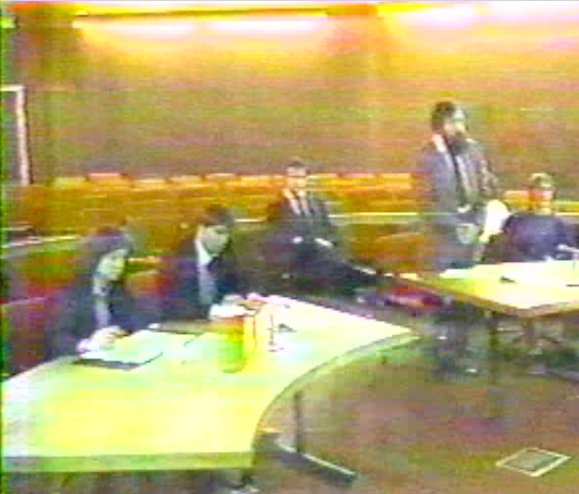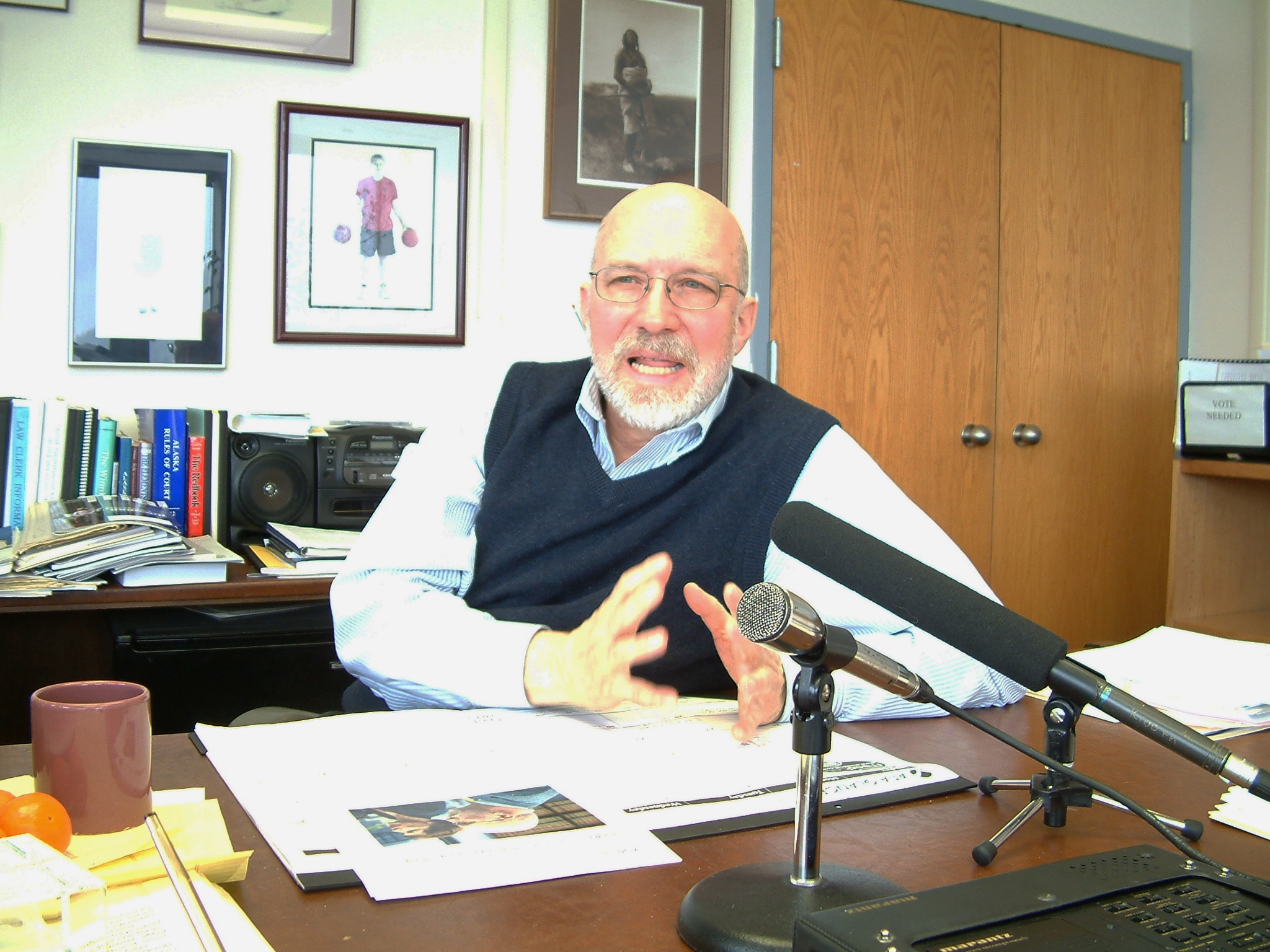March 1988 Phillip Weidner had a way of reaching into the grittiest, grimiest details of a criminal case. As always, his words left nothing to the imagination. And if Larry Demmert, Jr. was on the stand, drugs were the chief attraction. This time around, Weidner accused the Libby 8 skipper of being “heavily under the influence of valium” during his grand jury testimony. Then he went a step further. He suggested Demmert was “addicted to valium.” There is was. Addiction. In plain English.

Assistant D.A. Bob Blasco was enraged. Judge Carpeneti was angry enough to issue a judicial order demanding Weidner appear at a hearing. There, he’d have to explain why he shouldn’t be hit with sanctions and held in contempt of court for calling out the alleged addiction. By the end of the day, the judge had termed the proceedings a “debacle.” Later that same day, in an attempt to get things moving again, Carpeneti issued a clarifying order that allowed Weidner to use synonyms for the prohibited terms. Addiction was out.
But what was in? The judge hadn’t specified what its synonym should be.
Wasted Day
The next day of Demmert’s courtroom appearance wasn’t much better. The jury heard only twenty minutes of testimony. Larry Demmert adamantly rejected Weidner’s “synonyms” for addiction. The legal disputes boiled over again. The judge sent the jury home. Carpeneti did take care of one piece of business. He issued an order denying Weidner’s newest motion for a mistrial. The Alaska Court of Appeals also weighed in that day, upholding Judge Carpeneti’s decision that John Peel’s second trial did not constitute double jeopardy.

March 21st saw additional movement, though it was out of the courtroom. The judge issued an order affirming his decision to preclude use of the word “addict” during cross examination of Larry Demmert. Weidner’s counter-argument relied heavily on government informers addicted to heroin. For that reason, those witnesses were “particularly susceptible to government pressure.”
“In contrast,” Carpeneti said, “the witness here is not a government informer, was not involved in heroin use specifically or narcotics generally, and was not even charged with violating narcotics laws.”
Seminal Case on Addiction
Carpeneti noted that the “seminal case” in this area of law was entirely different than ones Weidner cited. Even there, the judge could find no parallels to the situation of Larry Demmert, Jr. He was not an addict-turned-informer desperate to produce results for the police. And the experts produced by the defense, who told the judge of valium and its effects, had failed to convince him that a “person ‘addicted’ to valium predictably will behave like heroin addicts in similar circumstances.” Carpeneti’s own research found little precedent for warning juries that a person dependent on prescription drugs-or alcohol might manufacture evidence for overzealous prosecutors.

While turning away Weidner’s plea to call Larry Demmert an addict, however, Carpeneti reaffired his earlier ruling allowing questions concerning “the amounts of valium that he was using at relevant times and his belief as to whether he had a dependency on the drug.” Though noting that the “defendant’s theory of relevance of the entire area is tenuous at best,” he said he would also allow questions concerning Demmert’s alleged “fear of jail,” under the rationale that “even a tenuous theory raises jury questions if there are some facts to support it.”
Nonsensical
No sooner had Weidner received the decision, however, than he filed a motion asking for clarification. The defense attorney said he wanted to impeach Demmert by confronting him with his prior statements, which had used the term addict. To do so while meeting the letter of the judge’s ruling, Weidner proposed that he read Demmert’s past statements without reading the prohibited terms.
The judge termed this approach “nonsensical.” And it was. It would be like reading an erotic novel to children, while leaving out all the grown-up words.
Excerpts from the unpublished original manuscript, “Sailor Take Warning,” by Leland E. Hale. That manuscript, started in 1992 and based on court records from the Alaska State Archive, served as the basis for “What Happened in Craig.”
Copyright Leland E. Hale (2021). All rights reserved.

Order “What Happened In Craig,” HERE and HERE. True crime from Epicenter Press.